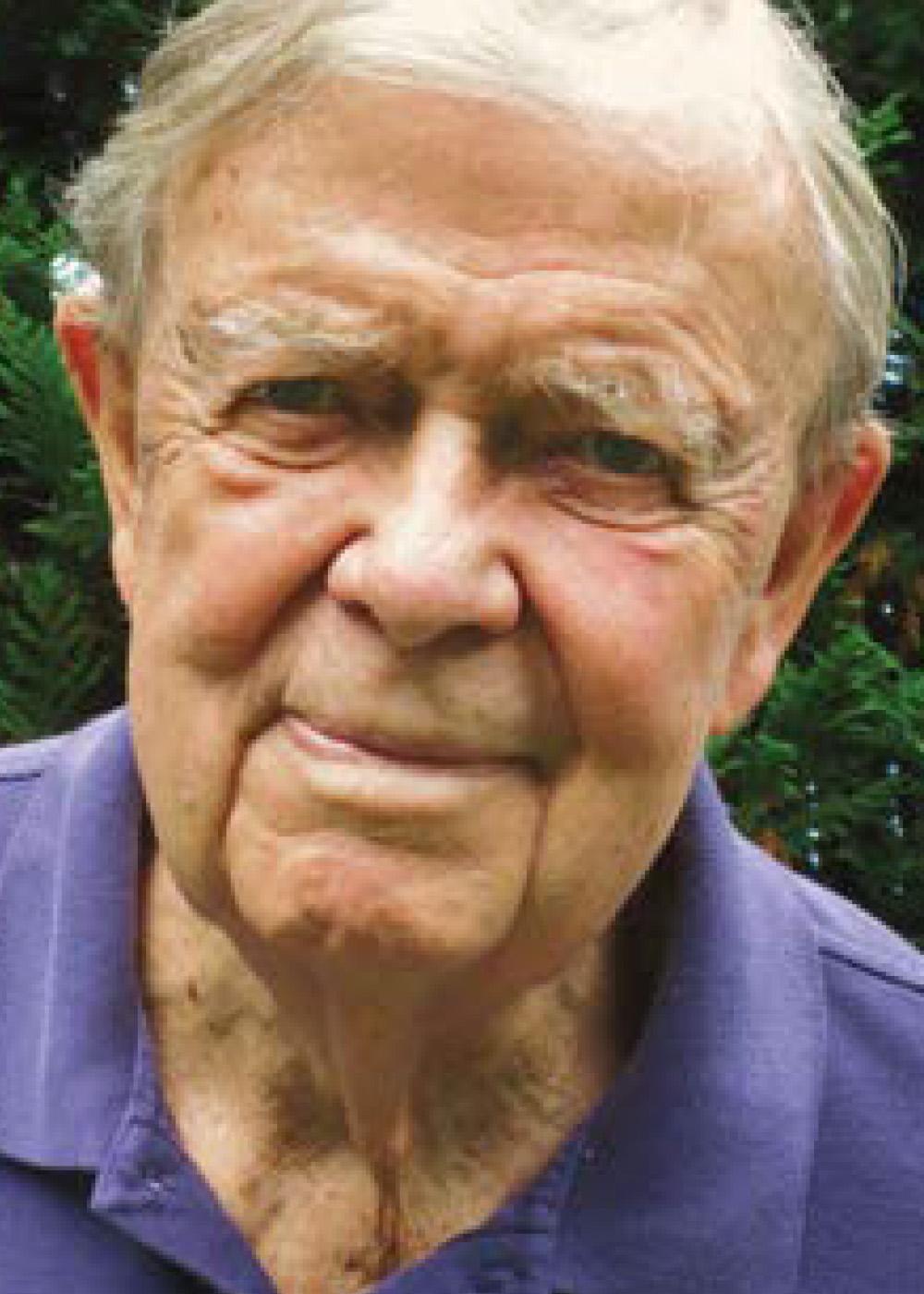The Teacher

Rod Jellema ’51 was an unlikely candidate for poetry. But poetry took him anyway.
Jellema, Calvin’s most notable poet to date, had already started his undergraduate journey in the college’s pre-med program when upperclassmen encouraged him to get to know professors in the English and philosophy departments.
“My life became the study of literature and philosophy,” Jellema reflected. “I never looked back.”
Jellema credits his trajectory to professors Harry Jellema (philosophy), Henry Stob (philosophy) and Henry Zylstra (English). “These three men—models of the art of teaching—have been with me ever since. Their discriminating insights into the values of civilization past and present, sharpened by Christian sensibilities and a critical foundation, led me into graduate studies and university teaching,” said Jellema. He adds: “My work as a poet, beginning at age 40, was a natural extension.”
An author of five poetry books, Jellema also sees his art as a natural extension of his faith, though often not in an overt way.
“If real, historic poetry is what I'm doing … then I cannot write only Christian poems any more than a Christian physicist can do only Christian physics,” said the professor emeritus at the University of Maryland, College Park. “Poetry, like physics, is a way of exploring and seeing, not first of all a way of preaching its own basis.”
For Jellema, poems are “incarnate bodies,” regardless of whether or not their subject matter is seen as faith-related. “The faith is pretty much who I am,” Jellema explained, “but only less than one-third of the poems are ‘religious.’”
Instead of starting with an agenda, Jellema starts simply: “I put aside big things that I want to say. I start with images and movements of sound that help me to discover—in words—moments and insights that I do not know how to ‘say’ while I am in the process of embodying them in an artifact called a poem.”
What keeps Jellema writing? He shares his two main catalysts: “Affection and praise from my wife and our dog,” is the first. Second is “knowing that there is something out there, or something deep in language itself, just beyond the limits of the unaided intellect. To touch it now and then is very pleasant, like scratching an itch.”
Civilization
Archaeologists in China have found the world’s oldest playable musical instrument—a 9,000 year old flute carved from the wing bone of a crane.
—Los Angeles Times
Long before the Greeks measured to set
the frets on their lutes, dividing tight strings
by exactness of tones, long before that,
someone in China, probably a girl with time
and some need to walk alone near the sea,
lifted to lips the hollow wing bone of a crane
and blew through it, no thought of why,
mixing sky-air that lifts wings and sleeves
with the unseen source of life they call breath.
Imagine the whistles and arcing bird-cries
these people learned to make as they breathed
through bones with scaled apertures and lengths
and drilled little holes where fingers could find
the tunes beyond birdsong they began composing.
How plaintive and lonely the wordless sounds
must have been – calling out thin, rising, then
drifting into and through the Bo leaves,
over rocks, like smoke in curtains and rafters,
vanished as softly as morning mist off the Yangtze,
like thoughts half-remembered. But the tunes lacked
grounding, sounds that tied light melodies down
to stone floor and soil and the warm flesh
of hands. Years later, long miles to the west,
high up and getting out of the wind,
chapped hands of shepherds and goatherds tugged
animal guts and dried them and learned to snap
their lengths of string to vibrate them
against flat wood, later hollowed out ,
to make the kind of sounds for love or despair
that Athenian throats would utter if only they could.
The sweaty pluck and thrum of finger and hand
hefted earth tones struggling upward, rising to meet
the vibrato of long breaths ringing out of
that hollow wing-bone, and the melding created
dialogue, Greek harmony, music, sympathy,
a transcending of selves, a republic.






